Top Best Tips and Warnings for a Successful Trip in Vietnam
Vietnam is without a doubt a country with a rich culture and welcoming locals. However, navigating its unique cultural norms and practices can be a challenge for first-time visitors. To ensure a smooth and enjoyable trip, it’s essential to understand the dos and don’ts in Vietnam. Being mindful of etiquette and cultural expectations will not only enhance your experience but also show your appreciation for this incredible destination. This guide offers practical tips and warnings for a successful trip to Vietnam, helping you make the most of your adventure while staying respectful and informed.
Dos and Don’ts in Vietnam
As with any destination, understanding the local customs and etiquette can make a big difference in your experience. To help you prepare, here’s a comprehensive guide on what mistakes to avoid in Vietnam, what to be careful of, and what is considered rude.
Public Displays of Affection
Don’t: Public displays of affection, such as kissing, hugging, or even holding hands, can make locals uncomfortable, especially in rural areas where traditions are more conservative. While attitudes may be more relaxed in larger cities like Hanoi or Ho Chi Minh City, it's still advisable to tone down romantic gestures.
Why: Vietnam places a high value on modesty and family-oriented values, and excessive public displays of affection may be seen as disrespectful or inappropriate.
Do: Greet people with a smile, a slight nod, or a handshake when meeting them. For deeper respect, especially with elders, bowing slightly is a thoughtful gesture.
Tip: If you're unsure, observe how locals interact in public spaces. Respect for local customs will help you avoid misunderstandings.

Tap Water
Don’t: Avoid drinking tap water at all costs. Vietnam’s water supply is not treated for direct consumption and may contain harmful bacteria or contaminants. Even locals typically boil water or rely on filtered systems.
Why: Consuming untreated water could lead to health issues such as stomach problems or more severe illnesses.
Do: Stick to bottled water, which is widely available and affordable. Most accommodations also provide complimentary bottled water. Ensure the seal is intact before drinking.
Tip: Use bottled or filtered water for brushing your teeth and rinsing fruits and vegetables. This small step can help prevent illnesses.
Crossing the Street
Don’t: Never dash across the street or wait endlessly on the curb for an opening; it won’t come. Vietnamese traffic, especially in cities, can feel overwhelming due to a lack of defined lanes and the sheer number of motorbikes.
Why: Sudden movements or hesitations can confuse drivers and increase the risk of accidents.
Do: Step onto the road confidently, walk at a steady pace, and maintain eye contact with approaching drivers. This silent communication signals your intent to cross. Drivers are skilled at navigating around pedestrians who move predictably.
Tip: Join a local or follow other pedestrians when crossing for additional safety, especially if you’re new to the environment.ưè

Disrespect for National Heroes and Symbols
Don’t: Avoid making jokes, derogatory remarks, or displaying disrespect toward national symbols like the Vietnamese flag, currency, or images of national leaders, particularly Ho Chi Minh.
Why: These symbols hold immense historical and cultural significance. Disrespecting them can offend locals deeply and may even result in legal trouble.
Do: Take time to learn about Vietnam’s rich history and its revered figures. Visiting sites like the Ho Chi Minh Mausoleum or museums can help you better understand the nation's pride and struggles.
Tip: When visiting memorials or government sites, maintain a quiet demeanor and dress respectfully.
Bargaining for Goods and Services
Don’t: Do not accept the first price offered in markets or with street vendors. However, being overly aggressive or arguing loudly can sour the interaction.
Why: Bargaining is a common and expected practice in Vietnam, but showing anger or disrespect can offend sellers and attract negative attention.
Do: Start by offering about 50–70% of the initial price and negotiate calmly. Keep a friendly attitude and smile throughout the process, even if you decide not to buy.
Tip: Be mindful of what’s reasonable. While bargaining is part of the culture, haggling over small amounts may seem petty to locals.

Pointing with Your Finger or Feet
Don’t: Pointing at people or things with your finger, especially during conversations, can be interpreted as rude or aggressive. Similarly, using your feet to point or touch objects or people is highly disrespectful.
Why: In Vietnamese culture, the head is considered sacred, while the feet are seen as the dirtiest part of the body. Using feet to gesture can be offensive.
Do: Use your entire hand when gesturing toward someone or something. Keep your hands relaxed, and avoid making overly animated gestures in formal settings.
Tip: When seated, especially in temples or homes, avoid showing the soles of your feet. Sit with your legs crossed or tucked to the side for proper etiquette.
Disrespecting Local Customs
Don’t: Avoid wearing revealing clothing, speaking loudly, or acting disrespectfully in religious and culturally significant places. Ignoring these customs can offend locals and diminish your travel experience.
Why: Vietnam has deep-rooted traditions tied to respect, modesty, and community values. Understanding and adhering to these customs is essential for a meaningful visit.
Do: Dress modestly when visiting temples, pagodas, or rural villages. Cover your shoulders and knees, and remove hats and shoes before entering sacred spaces.
Tip: Always ask for permission before taking photos of people, especially monks or elders. This simple gesture shows respect and builds positive connections.

Don't Argue About the Vietnam War
Don’t: Avoid initiating debates or making insensitive comments about the Vietnam War, known locally as the American War. This is a sensitive topic for many Vietnamese, as it deeply affected families and communities.
Why: Such discussions can evoke painful memories or come across as disrespectful to the nation's history.
Do: If the topic arises, listen respectfully and acknowledge the challenges Vietnam has overcome.
Tip: Focus conversations on Vietnam’s vibrant culture, modern achievements, and the resilience of its people.
Health Issues
Don’t: Don’t ignore minor health concerns, as Vietnam’s tropical climate and bustling cities can expose travelers to unfamiliar illnesses.
Why: Early attention to symptoms like stomach discomfort or insect bites can prevent serious complications.
Do: Carry a basic first aid kit and ensure your travel insurance covers medical expenses. Pharmacies are widely available, and many staff can assist in English.
Tip: Vaccinations for diseases like typhoid, hepatitis, and dengue fever are recommended before traveling.
Tipping
Don’t: Over-tip, as it can create unrealistic expectations for locals and distort traditional practices. Tipping excessively can also make other travelers feel pressured. It's also possible that some places don't expect a tip, which can vary depending on the tourist or local area.
Why: While tipping is appreciated, it’s not customary for all services in Vietnam.
Do: Leave small tips for exceptional service, such as rounding up taxi fares or leaving a small amount at restaurants. Tour guides and hotel staff are more accustomed to receiving tips. As a general rule, a modest and discreet tip is appreciated, but don't feel obligated to give more than what is appropriate.
Tip: Carry small denominations of Vietnamese dong to tip appropriately.

Taking Photos without Precaution
Don’t: Avoid snapping pictures of people, especially in rural areas or of ethnic minorities, without first asking for permission. Some may feel uncomfortable or view it as intrusive.
Why: Unsolicited photography can be seen as a lack of respect for privacy or cultural norms.
Do: Always ask politely, using a smile or basic Vietnamese phrases like "Tôi chụp ảnh được không?" (Can I take a photo?).
Tip: Be extra cautious near military installations or airports, where photography is often prohibited.
Respecting the Privacy of Premises
Don’t: Enter private homes, businesses, or religious sites without an invitation or permission.
Why: Many places, even if they appear open, are personal or sacred spaces. Intruding without consent can offend locals.
Do: Look for signs indicating whether a place is open to the public and follow posted guidelines.
Tip: Remove your shoes before entering homes or temples as a sign of respect.

Respecting the Environment
Don’t: Litter or leave waste behind when visiting natural attractions. Vietnam’s growing tourism industry has already put pressure on its pristine landscapes.
Why: Disrespect for the environment not only harms ecosystems but also diminishes the country’s beauty for future visitors.
Do: Use reusable bottles and bags, and dispose of waste in designated bins. Participate in eco-friendly activities and tours when possible.
Tip: Support local initiatives focused on sustainability and conservation.
Learn Some Basic Vietnamese Phrases
Although English is increasingly spoken in tourist areas, it is still limited in more rural areas and small businesses.
Do: Learn simple Vietnamese phrases like “Cảm ơn” (Thank you), “Xin chào” (Hello), “Tạm biệt” (Goodbye) and “Bao nhiêu tiền?” (How much does it cost?).
Why: Even basic attempts to speak Vietnamese are warmly appreciated by locals and can open doors to friendlier interactions.
Tip: Carry a phrasebook or use language apps for quick translations during your trip.

Overfriendliness of the Locals
Don’t: Misinterpret the friendliness of locals, particularly in rural areas, as intrusive.
Why: Vietnamese hospitality is genuine and often includes offers of tea, food, or assistance.
Do: Embrace their warmth, but politely decline if you’re uncomfortable or unable to participate in their offers.
Tip: Be cautious of overly persistent strangers in tourist-heavy areas, as some may be touting scams.
Eating Local Food
Do: Embrace Vietnam’s world-famous cuisine by trying dishes from street vendors and local eateries. This is the best way to experience the authentic flavors of the country. Don’t just stick to regular Western food!
Why: Vietnamese street food is often fresh, delicious, and affordable. Eating where locals dine ensures you’re tasting the most authentic and highly regarded dishes.
Don’t: Avoid judging food by appearances or being overly cautious about unfamiliar ingredients. While hygiene standards can vary, popular street vendors are typically trusted by locals for their quality.
Tip: Start with must-try dishes like pho (noodle soup), banh mi (Vietnamese sandwich), and bun cha (grilled pork with noodles). Use hand sanitizer before meals and ensure meat or seafood is thoroughly cooked. Asking locals for recommendations can lead to memorable culinary experiences.

Chopsticks
Don’t: Avoid sticking chopsticks upright into a bowl of rice or using them to point at people. Both actions are considered offensive in Vietnamese culture.
Why: Chopsticks placed vertically in rice resemble incense sticks used in funerals, symbolizing death, which is an inauspicious gesture.
Do: Lay chopsticks neatly on the chopstick rest or across your bowl when not in use. Always handle them with care to show respect.
Tip: Practice using chopsticks before your trip if you're unfamiliar, or politely request a fork and spoon if you find them challenging.
Toilets
Do: Be prepared for squat toilets, especially in rural areas or at local eateries. Carry your own tissue paper and hand sanitizer, as these essentials may not always be provided.
Why: Facilities in remote regions are often basic, and modern conveniences like soap and toilet paper might not be available.
Tip: In cities, look for public restrooms in shopping malls or upscale cafes, which tend to have Western-style toilets. When in doubt, ask locals for guidance by saying “Nhà vệ sinh ở đâu?” (Where is the restroom?).
Booking Ahead
Do: Make reservations for accommodations, tours, and transportation well in advance, especially if you’re visiting during holidays or peak seasons like Tet (Lunar New Year).
Why: Vietnam’s most popular destinations, such as Ha Long Bay or Sapa, can sell out quickly, leaving last-minute travelers with limited or expensive options.
Tip: Opt for booking platforms or travel agencies with flexible cancellation policies to adapt to unexpected changes. Planning ahead ensures a stress-free and seamless experience.

Visa Options
Don’t: Neglect to check visa requirements before your trip. Some nationalities need an e-visa, while others may require a visa on arrival with a pre-approval letter.
Why: Traveling without the correct visa can lead to denied entry or unnecessary stress upon arrival.
Do: Research visa options thoroughly and confirm what applies to your nationality. Be mindful of the duration of your visa and ensure it covers your entire stay.
Tip: Print a copy of your visa or approval letter to present at immigration, along with passport-sized photos if required. Keep all documents organized for quick access.
Tips for a Successful Trip
If you want to avoid the common mistakes mentioned above, consulting a local travel agency can be an ideal solution to ensure a smooth, hassle-free stay. Not only does a local agency help you to organize your trip with complete peace of mind, but it also enables you to discover Vietnam from an authentic angle and avoid embarrassing or complicated situations. As mentioned above, Vietnamese people attach great importance to cultural rules and respectful behavior. Without a thorough knowledge of social and cultural codes, it's easy to make a mistake, even if it’s not intentional.
A local travel agency will explain cultural subtleties to you before you leave and offer practical advice on how to avoid blunders. This can include details such as how to greet and address the locals, or even what gestures to avoid so as not to offend. By opting for an agency like Vietnam Original Travel, you not only avoid potential cultural mistakes, but you also benefit from a well-planned and enriching stay, where every detail is taken care of for your comfort and peace of mind.

Frequently Asked Questions
Can you brush your teeth with tap water in Hanoi?
While brushing your teeth with tap water in Hanoi is generally considered safe for locals, it’s not recommended for travelers. Tap water in Vietnam is treated but may contain bacteria or minerals that your system isn’t accustomed to, potentially causing stomach issues.
Tip: Use bottled or boiled water to brush your teeth as a precaution, especially if you have a sensitive stomach.
Is kissing in public allowed in Vietnam?
Vietnam has a conservative culture, and overt displays of affection can make locals uncomfortable, especially in rural areas.
What to Do Instead: Keep affectionate gestures private to avoid drawing unnecessary attention or offending locals. A brief hug or holding hands is more acceptable.
Is it OK to wear shorts in Vietnam?
Yes, wearing shorts is acceptable in most parts of Vietnam, especially in casual settings or tourist areas. However, avoid wearing shorts when visiting temples, pagodas, or other religious sites, where modest clothing is expected. In formal or business settings, long pants or skirts are more appropriate.
Tip: Pack lightweight, breathable clothing for the hot climate, but include modest attire for cultural visits.
What is prohibited in Vietnam?
Drugs: Possession or trafficking of illegal drugs can result in severe penalties, including the death penalty.
Anti-Government Speech: Publicly criticizing the government or promoting anti-state propaganda is illegal.
Photography: Avoid taking photos of military installations, border areas, or other restricted sites.
Cultural Offenses: Disrespecting national symbols like the Vietnamese flag or currency is prohibited.
What is considered bad manners in Vietnam?
Pointing: Using your finger or feet to point at someone or something is considered impolite.
Chopsticks: Sticking chopsticks upright in a bowl of rice is taboo.
Feet on Furniture: Placing your feet on chairs, tables, or other furniture is seen as disrespectful.
Ignoring Elders: Failing to show respect to elders, such as not greeting them first, is considered bad manners.
What not to say in Vietnam?
Certain topics or phrases should be avoided to prevent misunderstandings or offending locals:
The Vietnam War: Avoid discussing or debating the war unless the topic is brought up by a local.
Negative Comparisons: Avoid comparing Vietnam unfavorably to other countries or cultures.
Overly Personal Questions: Asking about someone’s income, marital status, or political views can be intrusive.
Conclusion
By following these dos and don’ts in Vietnam, you can avoid common pitfalls and demonstrate respect for local traditions. Keep these tips and warnings for a successful trip in mind, and you’ll not only enjoy a stress-free adventure but also leave a positive impression on the people and places you visit.
>>> How to Prepare For A Trip to Vietnam?
>>> How to Book A Tour to Vietnam With A Local Travel Agency?
Send us your comments about : Top Best Tips and Warnings for a Successful Trip in Vietnam
Required fields *
You might also be interested
Our clients’ favorite journeys to customize
Looking for inspiration? Discover some of our most popular tours in Vietnam, highly appreciated by our travelers. They are a great starting point to help you choose the perfect journey through Vietnam, Laos, Cambodia, Myanmar, or Thailand—whether you’re traveling solo, as a couple, with family, or with friends.
And since this is your trip, feel free to customize it just the way you like!
Vietnam Cambodia Itinerary 14 Days
Hanoi – Hoa Binh – Mai Chau – Ninh Binh – Halong bay – Hue - Danang – Hoian – Saigon – Ben Tre - Can Tho – Saigon - Siem Reap Angkor - Tonlé Sap - Siem Reap – Ta Prohm - Departure
Vietnam and Laos 14 days
Saigon - My Tho - Da Nang- Hoian – Hue - Hanoi - Halong Bay - Vientiane Luang Prabang - Pak Ou – Khuang Si - Luang Prabang – Departure
Honeymoon Tour Packages In Vietnam 12 Days
Saigon Arrival - City Tour – Mekong Delta – Danang – Hoian - by flight - Da Nang – Hanoi - by flight – Halong - overnight on junk – Departure
Authentic Hoang Su Phi Trekking Tours
Hoang Su Phi trekking tours take you to stunning terraces, meet few tourists, connect with locals and enjoy authentic culture.
The Best of Ha Giang Trekking Tours
Discover Ha Giang on trekking tours where you live local life, enjoy breathtaking views and escape the crowded routes.
Vietnam Itinerary 2 Weeks
Hanoi - Ninh Binh - Lao Cai - Sapa - Muong Hum market - Ha Long Bay - Hue - Danang - Hoi An - Saigon - Mekong Delta - Cai Rang floating market - Departure
Are you interested in this tour?



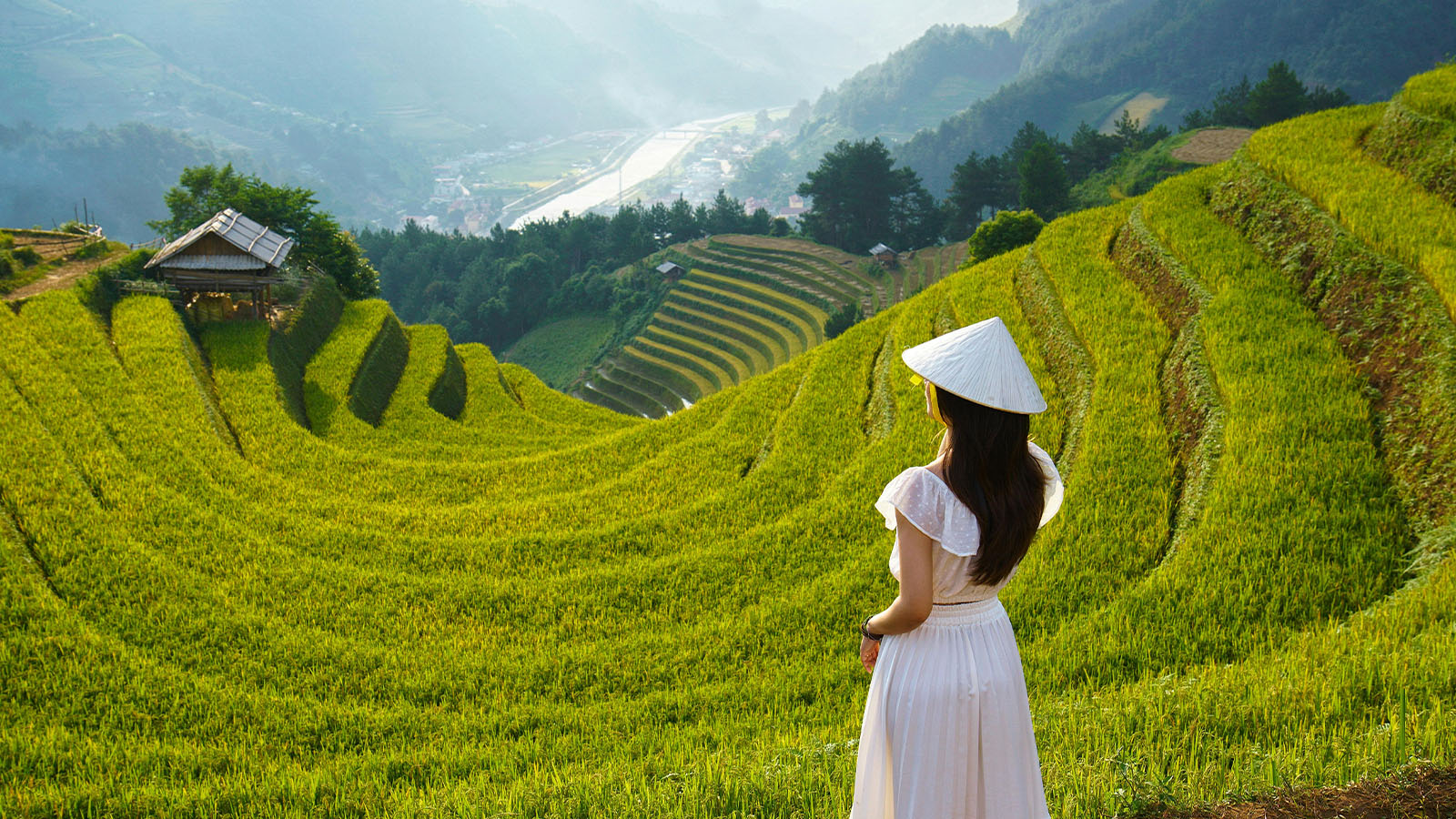

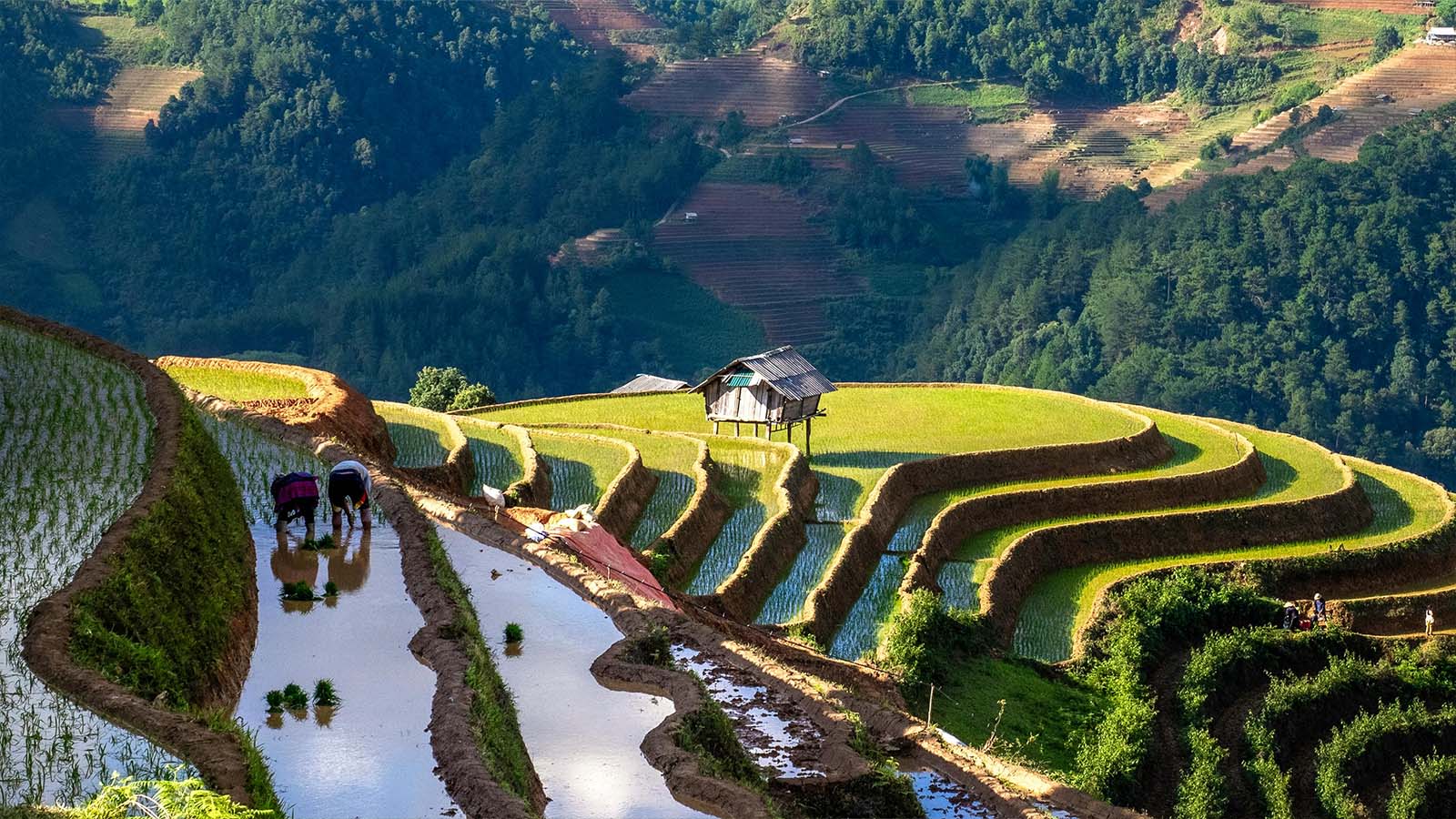
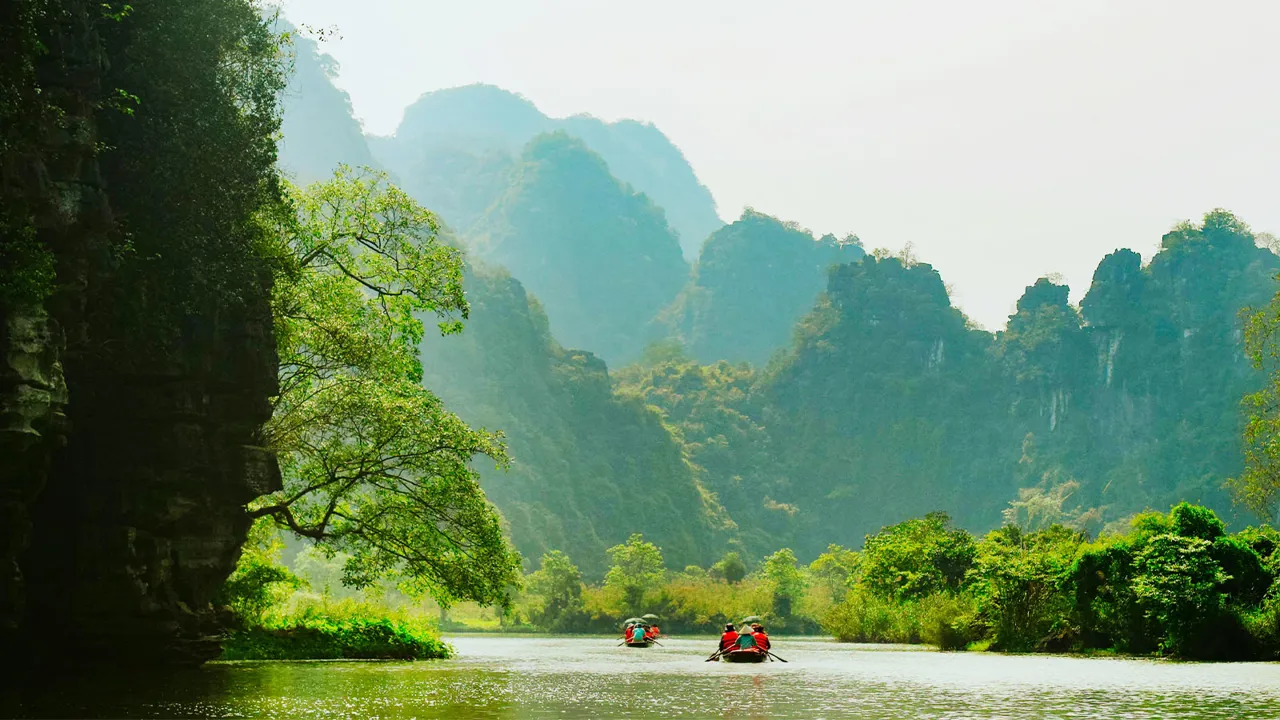











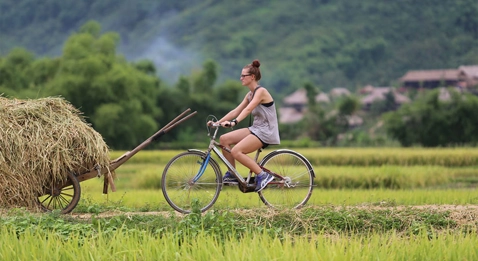

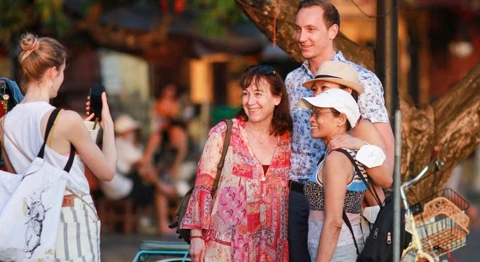
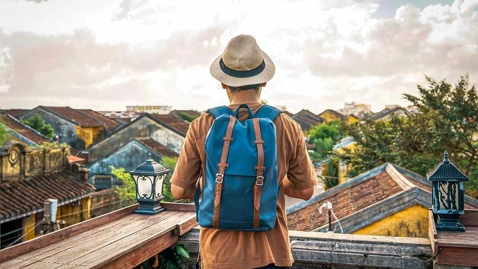
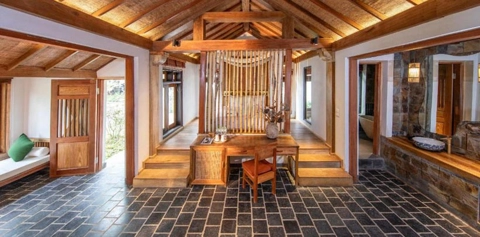


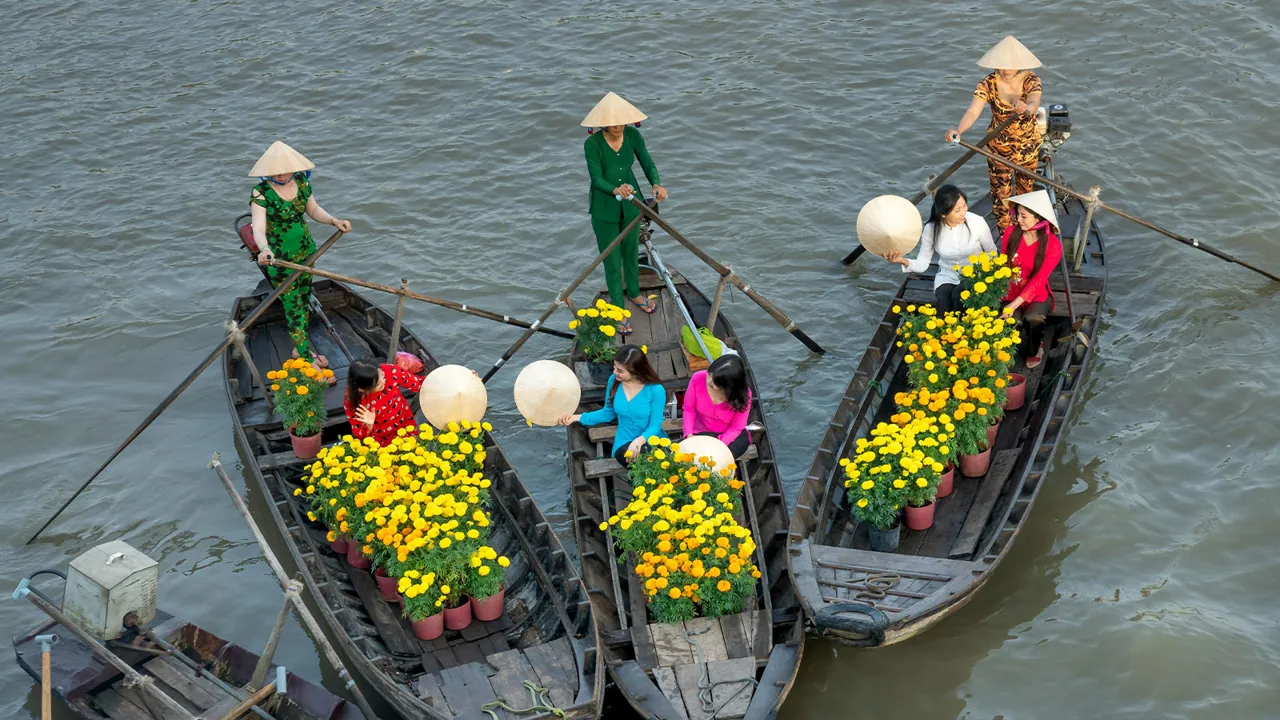




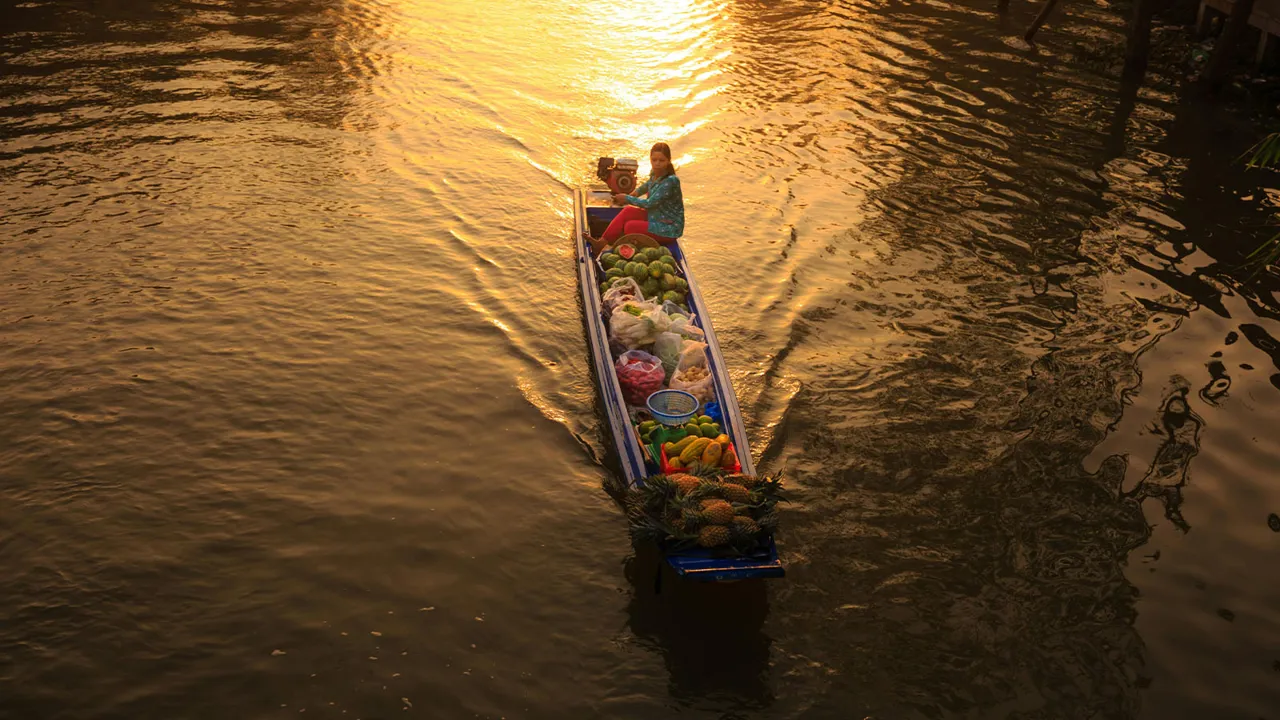
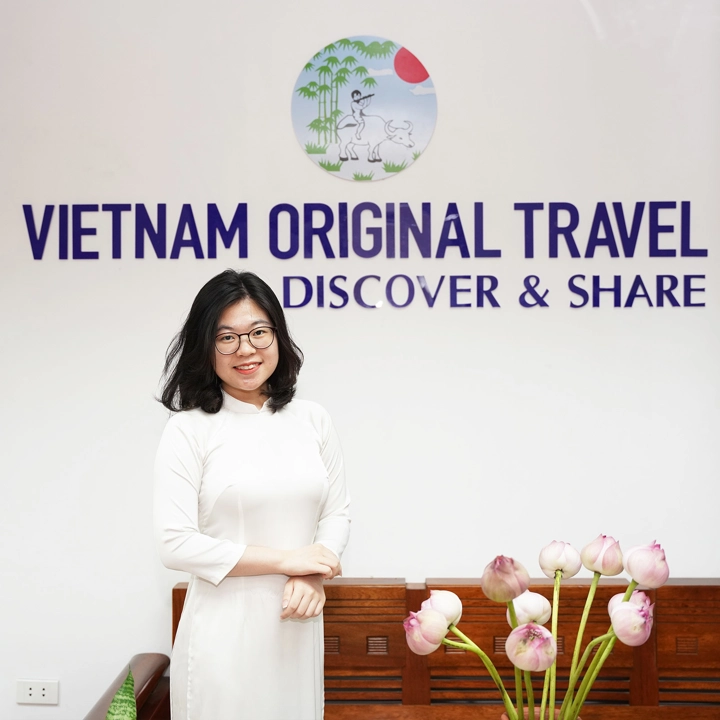
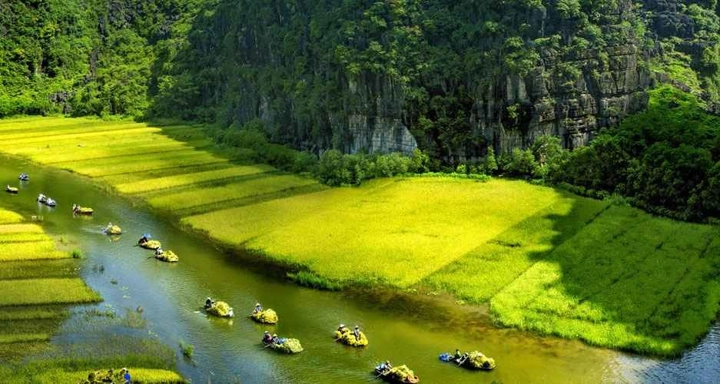
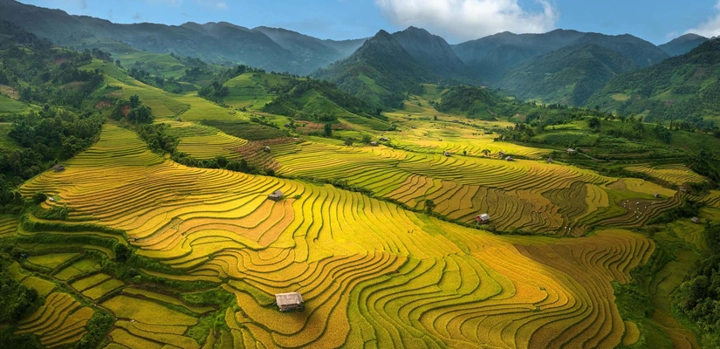

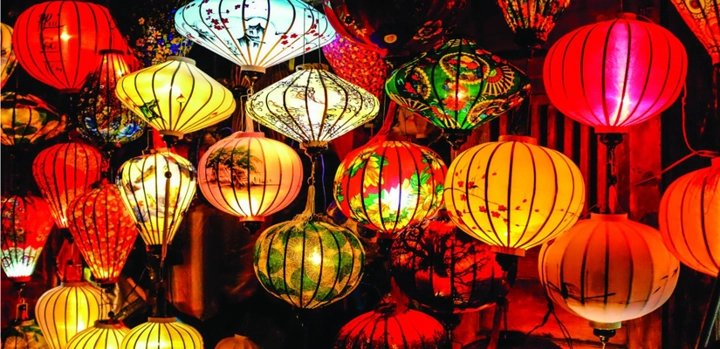





Comment